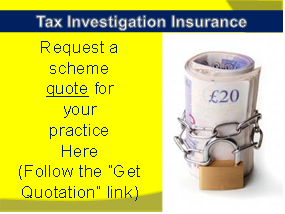HMRC has published the 10 worst excuses, in its eyes, for employers not paying their staff the minimum wage.
I note that the list excludes politicians who use the services of interns for nothing!
One employer claimed that a worker was his wife, but then had to ask her name. Another claimed that their employees didn’t speak English, so were not entitled to the minimum wage. Others simply tried to deny the employee worked there at all.
To coincide with NMW’s 15th anniversary, HMRC is today revealing the 10 worst excuses given in the past 12 months for not paying the minimum wage:
1. An employer said a woman on the premises was not entitled to NMW as she was his wife. When asked what his wife’s name was, the employer said: “Err, her name? What’s your name, love?”
2. One employer told HMRC: “My employees don’t speak English, so they’re not entitled to it.”
3. An employee ran out of the premises when HMRC officers arrived to check for NMW infringements. The same employee then returned – minus the work pinafore – with the employer claiming they were a customer.
4. Another employer told HMRC: “When the NMW goes up I do increase the amount I pay a little, even if the total pay is still below the NMW. I don’t think it’s right to ignore rises in NMW.”
5. Upon inspection, an employer told HMRC: “I know I am paying them too little, but they are happy to work for this amount because they are getting experience.”
6. An employer said his employee was just working for a few days, with a view to buying the business. When HMRC checked food safety records, the employee’s name was found on historic food temperature records.
7. An employer claimed they realised they were not paying employees NMW and had just this week increased their wages…to an hourly rate which was still below the minimum wage.
8. An employer told HMRC: “It wasn’t a conscious decision to say ‘I’m not going to pay this’, but I’ve never really considered doing it because I’ve not had people come to me and say, ‘I’m not getting paid enough’ or ‘Is this the minimum wage?’”
9. One employer claimed an employee was just a friend, and only in the restaurant as they were in the area. HMRC officers returned another day to find the employee in the kitchen preparing food.
10. A number of employers claimed that accommodation they provided workers made up for their shortfall in wages.
Jennie Granger, HMRC’s Director General of Enforcement and Compliance, said:
“Most employers are honest and pay their staff the correct rate. But this research shows that some still view the National Minimum Wage as a choice, and will even try these crazy excuses to avoid paying workers what they are due.
“Last year, HMRC’s investigations resulted in over 26,000 people getting a share of £4 million in back pay. HMRC investigate all complaints of employers failing to pay the minimum wage. We will take action to recover back pay for employees and fine employers who are not playing by the rules.
“HMRC officers work hard across the UK to ensure that everyone is paid at least the National Minimum Wage, and anyone who isn’t should call us.”
HMRC’s nationwide network of NMW enforcement teams investigate complaints, as well as educate employers and employees about what happens if they fail to pay their employees what they are owed.
Anyone who believes they are not being paid NMW can call the Pay and Work Rights Helpline, in confidence, for advice – in over 100 languages – on 0800 917 2368.
Currently, calls to the helpline from interns who are working for nothing, or for “expenses only”, are being fast-tracked to HMRC enforcement officers for investigation.
Notes for editors
1. The National Minimum Wage Act 1998 took effect on 1 April 1999.
2. The Department for Business Innovation & Skills (BIS) has responsibility for NMW policy. HM Revenue and Customs enforces the policy.
3. The National Minimum Wage is £6.31 an hour for workers aged 21 and over, increasing to £6.50 in October 2014. Further information about the different minimum wage rates, which depend upon age and apprentice status, can be found at www.gov.uk/national-minimum-wage-rates
4. HM Revenue and Customs has 16 minimum wage enforcement teams operating around the UK. Their job is to follow up complaints about non-payment of the minimum wage made to the helpline and to investigate employers at risk of not complying with the legislation. Enforcement officers also give presentations and talks to groups of employers to educate them about their NMW obligations.
Tax does have to be taxing.
Professional Cover Against the Threat of Costly TAX and VAT Investigations
Insurance to protect you against the cost of enquiry or dispute with HMRC is available from several sources including Solar Tax Investigation Insurance.
Ken Frost has negotiated a 10% discount on any polices that may suit your needs.
However, neither Ken Frost nor HMRCISSHITE either endorses or recommends their services.
What is Solar Tax Investigation Insurance?
Solar Tax Investigation Insurance is a tax-fee protection service that will pay up to £75,000 towards your accountant's fees in the event of an HM Revenue & Customs full enquiry or dispute.
To find out more, please use this link Solar Tax Investigation Insurance

HMRC Is Shite (www.hmrcisshite.com), also available via the domain www.hmrconline.com, is brought to you by www.kenfrost.com "The Living Brand"


"I note that the list excludes politicians who use the services of interns for nothing! "
ReplyDeleteHa. Excellent point. Yo and I often disagree, Ken, but sometimes I have to admit you do show evidence of at least some sort of sense of humor. :)
Maybe number 5 was from an MP?
Stew G